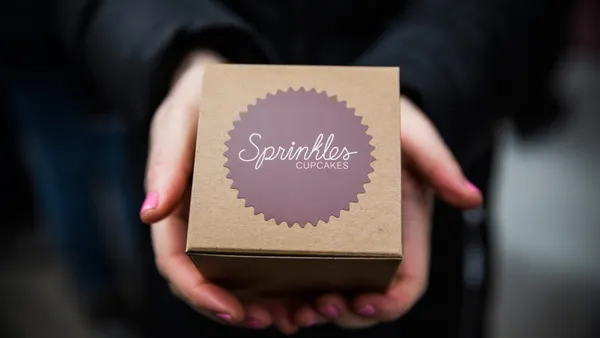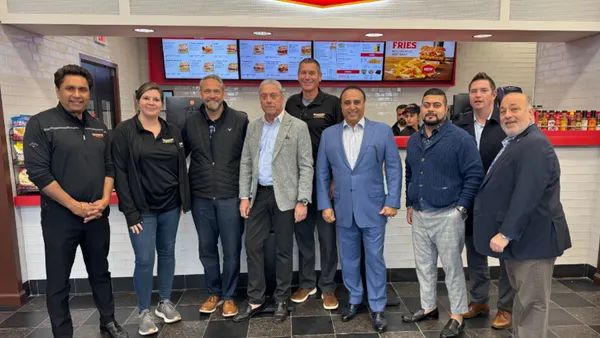Dive Brief:
- Starbucks has added another perk to its industry-leading benefits package for both full- and part-time workers: subsidized backup childcare and adult care. In partnership with Care@Work, a company that connects families with caregivers, employees can use up to 10 days of backup childcare at the cost of $1 per hour for in-home care ($2 per hour after the fourth child) or $5 per hour at a daycare, according to a company release.
- Starbucks will cover a premium membership to Care.com, a $150 value, for all U.S. cafe employees — no matter how many hours they work. The membership also offers access to long-term senior care planning.
- Combined with wage hikes and parental leave upgrades announced in January, Vice President of Benefits Ron Crawford said in the release, “Care@Work is the final piece of the puzzle."
Dive Insight:
As child care costs climb and labor inflation persists, restaurant chains are beefing up their benefits in an attempt to lure new workers and keep current employees happy. Starbucks has been at the forefront of this push — in January, the coffee giant began offering six weeks of paid leave for new parents working at least 20-hour weeks in cafés, plus an additional 12 weeks of unpaid leave required by the Family and Medical Leave Act of 1993. Parents adopting a child are also eligible for six weeks off.
The move has brightened Starbucks' mission-based halo, but it also makes good business sense in an increasingly competitive segment. Last-minute childcare emergencies reduce worker productivity and cost businesses money — to the tune of $4.4 billion annually, according to Child Care Aware of America. Parents can more easily stay in or re-enter the workforce if they know childcare is accessible, consistent and affordable.
Restaurants have long struggled to quell high turnover rates, and lately they have suffered worker shortages and crackdowns on undocumented workers. Fast-casual restaurants began turning heads in 2012 by offering perks like health insurance, transportation stipends, flexible spending accounts and 401k plans. But these initiatives seem to have dropped off as more cities and states hike minimum wages, tightening already slim belts in the restaurant business.
Just last week, Amazon galvanized minimum-wage dialogue with its announcement of a $15 base wage for its 250,000 U.S. employees. Target has also committed to a $15 wage by 2020, Costco pays $14, while Walmart, Walgreens and CVS offer $11. Most states have a higher minimum wage than the federal $7.25, and 18 states saw additional raises this year. But wages are only one piece of a complicated puzzle for luring fresh restaurant talent, as workers seems to desire opportunities for professional growth at their companies as well.
Starbucks already fulfills many of those wishes. The company offers family health insurance, including full coverage of preventive care; full tuition funding to enroll in Arizona State University’s online programs; paid parental leave, including for spouses and domestic partners; and higher wages, attributed in a release to last year’s tax overhaul.
“We are all more than who we are at work,” Starbucks’ director of benefits Alyssa Brock said of the new emergency childcare subsidies in the company release. Employees who take advantage of the program would pay, for one workday, $8 for a babysitter available through Care.com’s network, far less than the daily average parents are paying.
Combined with its other coveted benefits, Starbucks’ backup childcare perk gives the coffee chain a highly-visible advantage in the fight for restaurant talent, and could spur other chains in the coffee space and beyond to roll out similar programs.








